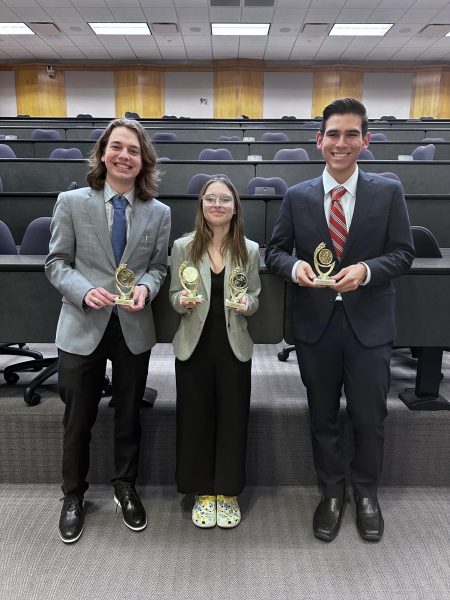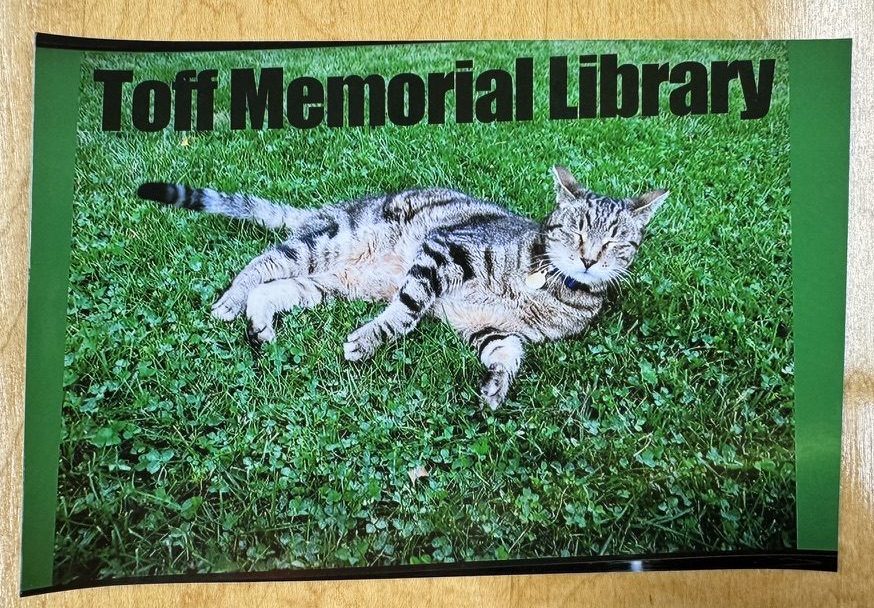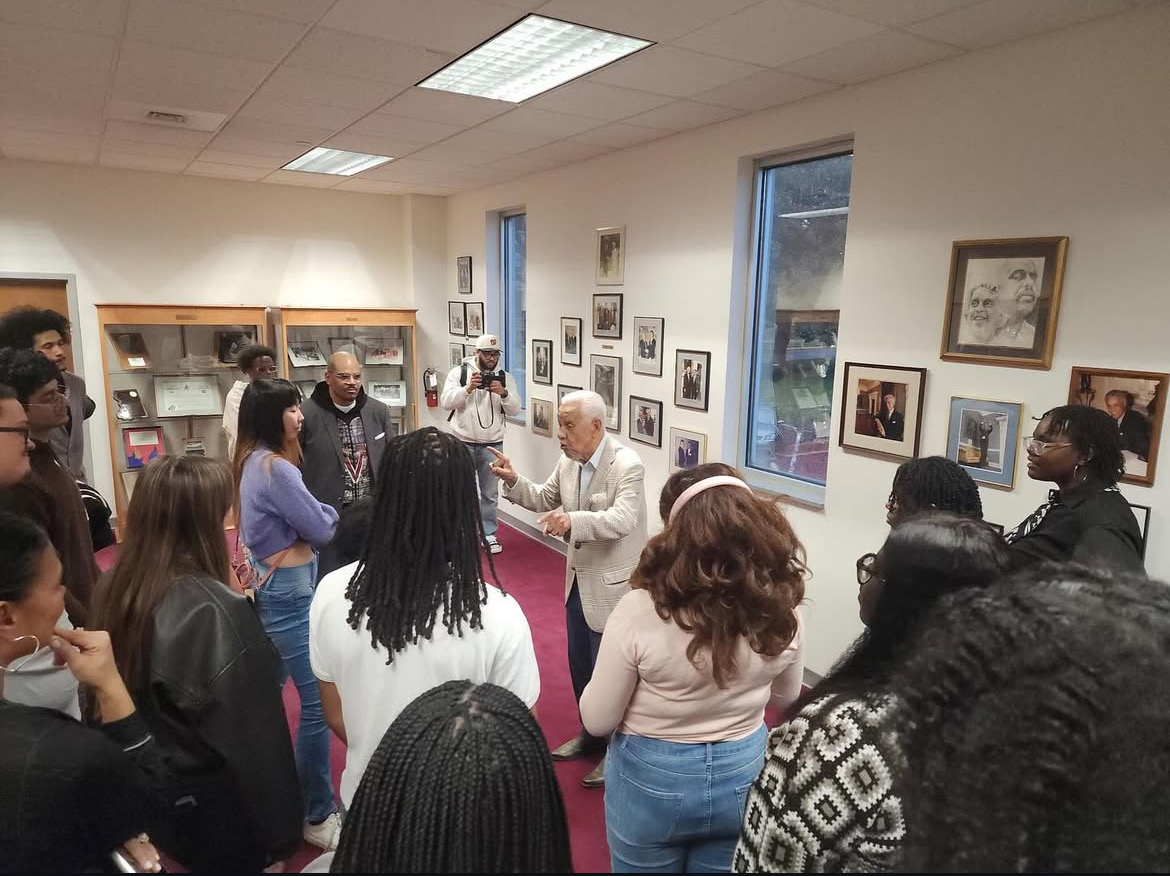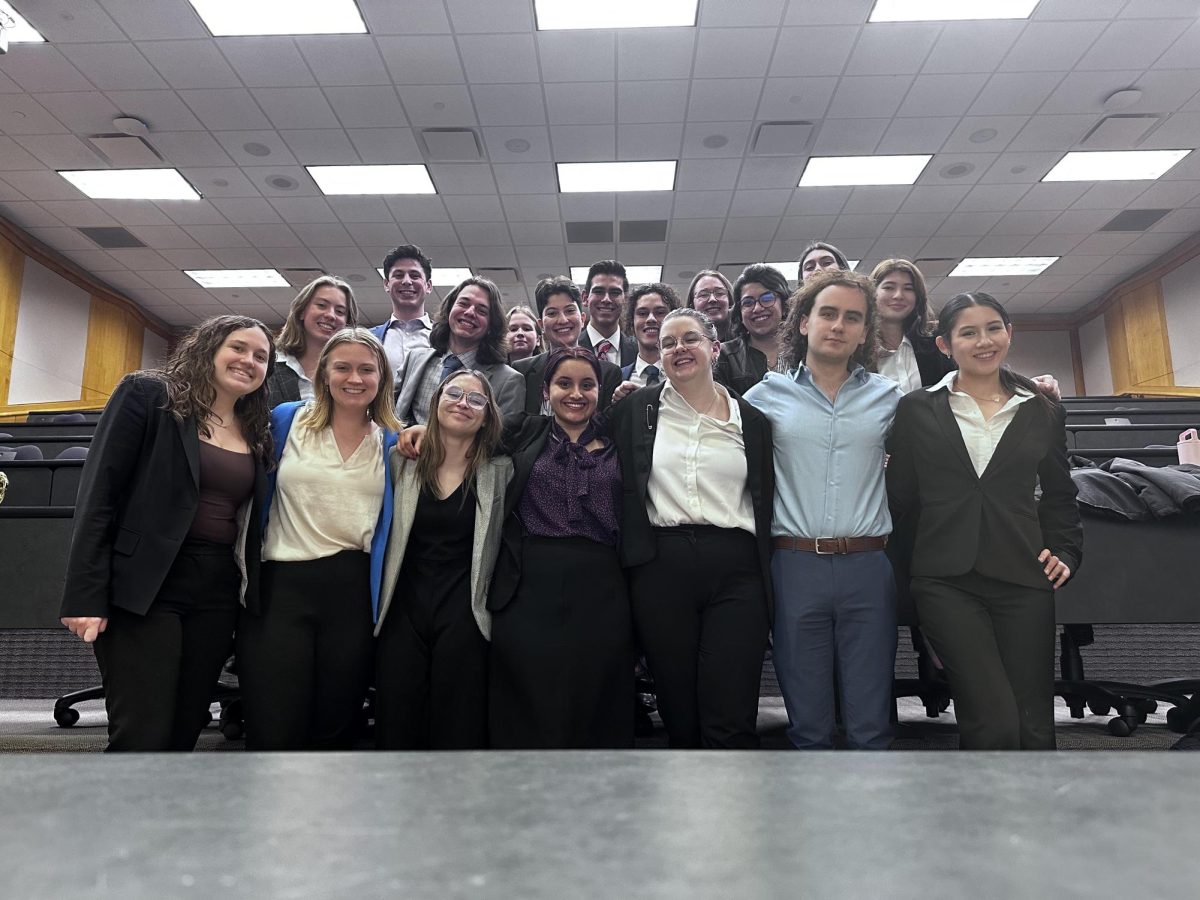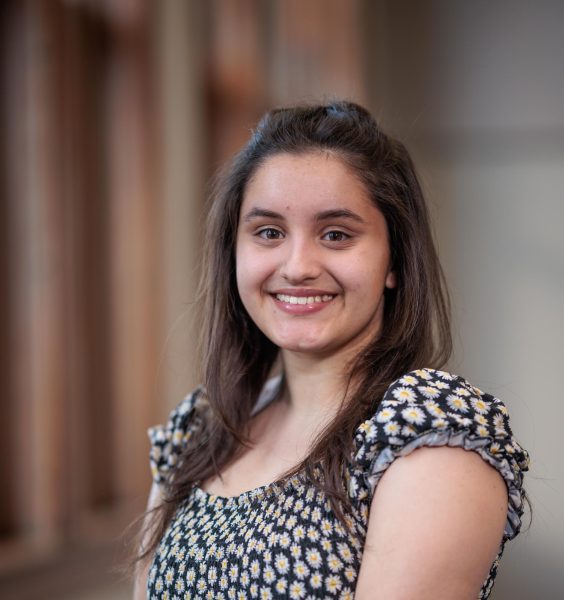Last weekend, Jan. 20 – 21, Carleton’s Mock Trial team attended the Scarlet and Cream Invitational in Lincoln, Nebraska. Mock trial teams from across the country came to compete at the University of Nebraska College of Law, from Carleton’s neighbors at St. Olaf College to the Air Force Academy.
As the mock trial competition enters its second season, having begun Fall Term, case theory becomes more complex and witness performances more advanced. Rather than grappling with a new case, the second season is focused on refining work from the pre-existing case. Throughout the school year, the mock trial case remains the same, save for a few minor case changes presented at the start of the winter season. Case materials, a compilation of case law, charges, affidavits and reports, are provided to participating mock trial teams in late August by AMTA, the American Mock Trial Association.
All teams work from the same case material to create their own case theory: explanations as to why the defendant is (or is not) guilty, and how to prove it in court. To learn more about the details of this year’s case, an art heist at a costume-themed gala, check out the article on it published last term, “Mock Trial kicks off their season.”
The world of mock trial operates in the fictional locale of Midlands. Under this jurisdiction, teams perform the role of both prosecution and defense, alternating between sides each round. Members of a mock trial team can be an attorney, and/or a witness. Attorneys give opening and closing statements, question witnesses and object to decisions made by the opposing team. They make these objections following case law and Midlands rule.
Witnesses go on the stand and answer questions according to their affidavit. Witnesses must stay completely faithful to their affidavit, even if it means they have to testify to some damning evidence during cross examination, (when an attorney from the opposing team gets to ask the witness questions). That said, witnesses do have the freedom to interpret their lines to a point, and creative liberty really comes out through the way they portray their character.
While team members usually specialize as either a witness or attorney, multiple students on Carleton’s mock trial team occupy both roles, performing as an attorney on one side of the case, while being a witness when their team is assigned the other side of the case. For example, when defending, a student may play the part of an eyewitness attesting to the fact that the defendant is innocent. However, in the next round, when prosecuting, a student may play the part of an attorney passionately asserting that the defendant is guilty. As both a witness or an attorney, participating in mock trial is all about thinking on one’s feet.
To prepare for this tournament, both of Carleton’s mock trial teams (Team A and Team B) have been meeting multiple times a week. At these practices, members complete a variety of exercises. To help hone their witnessing skills, students designed vision boards that represented the character each of them was playing. Additionally, witnesses interviewed each other in character, answering questions unrelated to the case in order to get a better grasp of who their character is on a larger scale, outside of what they have to offer to the case specifically.
Most of their energy is devoted to writing and memorizing their direct, a list of questions (asked by the witness’ attorney) and answers (performed by the witness). It is during the performance of these directs that witnesses flaunt their carefully-crafted personalities using their character lines. A character line is a phrase or sentence that does not necessarily help the case theory, but humanizes and endears the witness to the judges.
An example of a character line performed in this tournament was when Cyprus Cosmos, a philanthropist billionaire and an acquaintance of the defendant (De la Porta), answered the question, “Where was the security?” with, “I wasn’t in charge of their dress code so I wasn’t really sure. The server and I even went and checked the Security office, but I couldn’t find security anywhere.”
Attorneys practiced the precise wording necessary to make an impactful objection, and learned the ins and outs of stretching case law to fit their prerogative while making it unwieldy to the other team. As each team plays both defense and prosecution throughout the tournament — at one point arguing that the defendant didn’t do it, while later that day at the same tournament arguing that the defendant is guilty — the team must be flexible and creative.
Three individuals from Carleton’s team earned awards at the closing ceremony. Justin Rodriguez ’27, who debuted his role as a witness at the tournament, won an outstanding witness award. Charlie Solomon ’25, a veteran mock trial lawyer, won an outstanding attorney award. Audrey Goode ’25, newly appointed co-leader of Carleton’s B team, won both an outstanding witness and an outstanding attorney award.
Looking ahead, the mock trial team is preparing to attend regionals in Madison, WI on Feb. 17-18.
